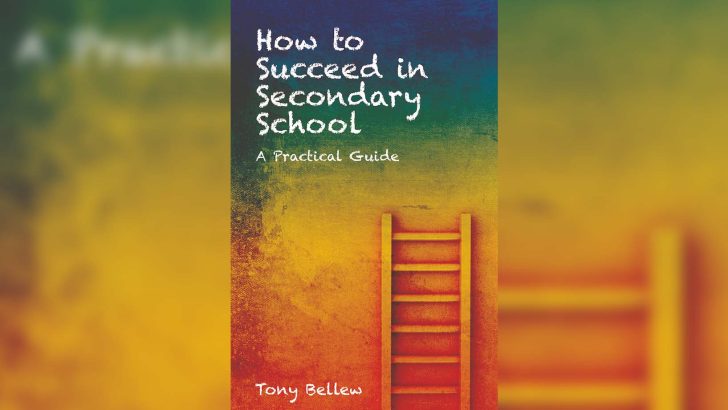How to Succeed in Secondary School: A Practical Guide by Tony Bellew (Orpen Press, €15.00/£13.00pb)
These first weeks of September, what with the anxieties of students of all ages about going back to school, the stress and strain on teachers, parents, and indeed families is very real. Their worries are not just economic, but also social and psychological, worries for the future of our young people.
I can foresee a great sale for Tony Bellow’s book. He is an experienced teacher, but these days he runs a tutorial business, not for groups but for individuals too. From personal experience I am well aware of the tremendous benefits from sitting with a personal tutor; it really focuses the mind and improves not only concentration, but also retention.
However, the great call for these services suggests as least to me that schools, perhaps from excessive class size, are failing a good number of their regular students.
In his book he provides a scheme by which students can organise themselves for work all the way through the secondary years. And this is a most helpful plan, not just for students, but for their parents who have to support it. Education has changed so much since most parents passed through it that an explanation of the present day system is most welcome.
But this raises the question – it does not pose the question, that is quite a different thing, as doubtless Mr Bellow explains to his students – of what education is for, what should we get from it, and what in fact we do get from it.
Today it seems to be the general policy of education in Ireland to prepare young people for a career in technology or related to technology. This is where the jobs will be, we are told. Yet if there is one lesson to be learned from the last 30 years or so, it is that technology changes all the time and often so rapidly that within a year or two much that is learned will be out of date and valueless.
(Many have become confused, failing to distinguish technology which alters all the time, from science which attempts to refine our knowledge of fixed facts as best it can, truths that never change.)
Rather, someone like this reviewer would feel that the purpose of education is not to provide the job training that firms like Google should provide from their own resources for their own staff.
What society needs is rather a system that educates people to be better people, finer citizens and attentive members of their communities. This was the ideal of the ancient cultures, or the classical cultures and the middle ages and most cultures of the world, even the pre-technological ones. We all want better citizens and kinder people. Such humanistic ideals, as expounded by Newman, were the commonplaces of classical and medieval and early modern teaching, but are no longer called for.
The classics have been abandoned and with them the proper manner of debate. Instead of debates leaving us open to the possibility of changing our minds through the quality of another’s arguments, “debate” has come merely to mean a way of excoriating people that we dislike, but do not know or want to listen to, through social media. No wonder we read constantly this year that social media, even telephones, are being curtailed or even abandoned by young people. Communicating rapidly does not mean communicating well.
What parents should demand is a return to older norms. For many rational minded Catholics that means restrictions on teaching, whereas Newman in his numerous writing on education called for a liberal education, a way to knowledge through the widest range of reading possible, as the proper way forward. Though he used liberal in the original meaning of that word, based on the humanities, and not on the meaning as distorted by economists, politicians and commentators.
This is the style of education we need, but alas it is not the education we get.
However, teachers are already beginning to say that the styles of education we have today may meet the needs of high tech, but it does not meet the real needs of society as a whole. We all know what should be done. We will have to see that it comes about.
Perhaps then focused teachers like Mr Bellew can provide all children with personal tutors!


 Peter Costello
Peter Costello
